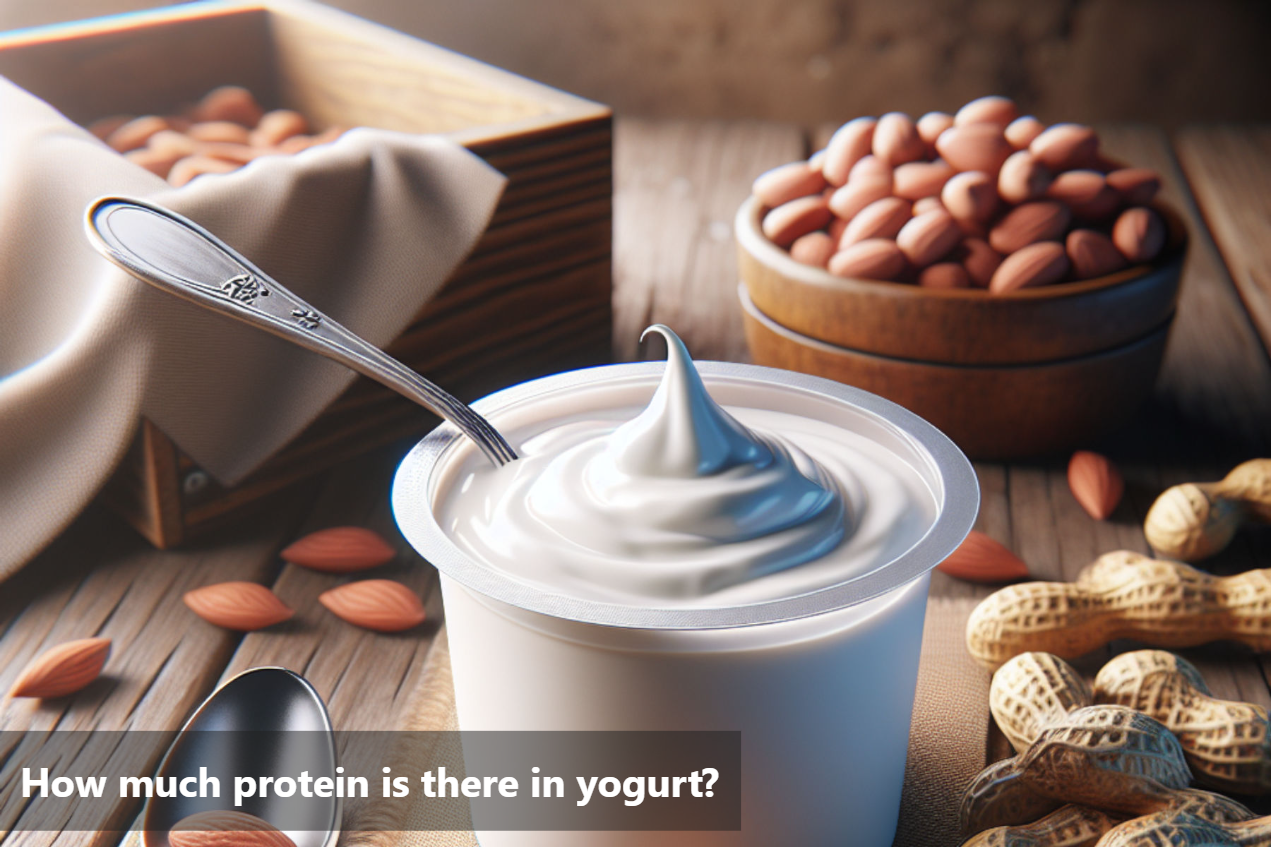
How much protein is there in yogurt?
Yogurt is a popular and nutritious dairy product that is known for its protein content, making it a valuable component of a healthy diet. Protein is essential for various functions in the body, such as building and repairing tissues, supporting immune function, and providing energy. When it comes to yogurt, the protein content can vary depending on the type of yogurt and the manufacturing process.
Greek yogurt, in particular, is renowned for its high protein content compared to regular yogurt. This makes it a preferred choice for individuals looking to boost their protein intake. Including yogurt in your diet can be beneficial not only for meeting your protein requirements but also for promoting overall health and well-being.
Whether you enjoy yogurt as a standalone snack or incorporate it into smoothies, parfaits, or sauces, it can be a versatile and convenient source of protein. By understanding the protein content in different types of yogurt and how it contributes to a balanced diet, you can make informed choices to support your nutritional goals.

Nutrients content in Yogurt
3.5 ounces (100 grams) of plain, whole-milk yogurt contains:
Nutrient |
Amount |
|---|---|
Calories |
61 |
Water |
88% |
Protein |
3.5 g |
Carbs |
4.7 g |
Sugar |
4.7 g |
Fiber |
0 g |
Fat |
3.3 g |
Factors Affecting Protein Levels in Yogurt
When it comes to the protein content in yogurt, several factors play a crucial role in determining the final amount of protein present in this dairy product.
One of the primary factors is the type of milk used in the yogurt-making process. Yogurts made from whole milk tend to have higher protein levels compared to those made from skim milk. This is because whole milk contains more protein than its skim counterpart, resulting in a creamier and more protein-rich yogurt.
In addition to the milk type, the processing methods employed during yogurt production can also influence the protein content. Longer fermentation times typically lead to higher protein levels in yogurt. The live bacterial cultures present in yogurt play a key role in breaking down milk proteins, resulting in the formation of additional proteins during fermentation.
Moreover, the inclusion of added ingredients like milk solids, protein concentrates, or whey can significantly boost the protein content of yogurt. These additions enhance the nutritional profile of yogurt, making it a more protein-dense option for consumers looking to increase their protein intake.
For individuals seeking yogurt varieties with optimal protein levels, selecting Greek yogurt is a wise choice. Greek yogurt undergoes a straining process that removes excess whey, resulting in a thicker consistency and higher protein concentration compared to regular yogurt. Choosing Greek yogurt over other varieties can be a simple yet effective way to boost your protein intake while enjoying a delicious dairy treat.
Yogurt Dishes at home in simple steps
1. Fruit and Yogurt Parfait
Ingredients:
Yogurt
Mixed fruits (e.g., berries, banana, mango)
Granola
Honey
Recipe:
Layer yogurt at the bottom of a glass.
Add a layer of mixed fruits.
Sprinkle granola over the fruits.
Repeat the layers.
Drizzle honey on top.
2. Cucumber Raita
Ingredients:
Yogurt
Cucumber (grated)
Mint leaves (chopped)
Cumin powder
Salt
Recipe:
Mix grated cucumber and chopped mint leaves into yogurt.
Add cumin powder and salt to taste.
Chill before serving.
3. Yogurt Smoothie
Ingredients:
Yogurt
Banana
Honey
Almonds
Ice cubes
Recipe:
Blend yogurt, banana, honey, and ice cubes until smooth.
Garnish with crushed almonds.
4. Yogurt Dip
Ingredients:
Yogurt
Garlic (minced)
Olive oil
Salt
Paprika
Recipe:
Mix yogurt, minced garlic, and salt.
Drizzle olive oil on top.
Sprinkle paprika for color and flavor.
Chill before serving with veggies or pita bread.
5. Frozen Yogurt Bark
Ingredients:
Yogurt
Mixed berries
Granola
Honey
Recipe:
Line a baking tray with parchment paper.
Spread yogurt evenly on the tray.
Scatter mixed berries and granola over the yogurt.
Drizzle honey on top.
Freeze until firm, then break into pieces.

Protein Content in Yogurt: A Detailed Look
Regular yogurt typically contains around 8-10 grams of protein per serving, making it a convenient option for meeting daily protein requirements. On the other hand, Greek yogurt stands out with its higher protein content, boasting approximately 15-20 grams of protein per serving, making it an excellent choice for individuals looking to increase their protein intake.
Including yogurt in your diet can contribute to your daily protein needs, support muscle growth and repair, and aid in overall satiety. Whether enjoyed on its own, mixed with fruits and nuts, or used in recipes, yogurt can be a convenient and delicious way to boost your protein intake while reaping the benefits of probiotics for gut health.
Prioritizing yogurt consumption can be a smart choice for enhancing your protein intake within a balanced diet. Be mindful of the protein content in different yogurt types, select options that align with your nutritional needs, and enjoy the nutritional benefits that yogurt has to offer.
This Blog post is an initiative by Lo! Foods, to provide accurate and Nutritionist / Doctor approved information related to Health. Lo! Foods is India's leading brand for Everyday Functional Foods. Foods designed for specific Health conditions or Needs. Lo! Foods also runs India's largest range of Low Carb Healthy Cloud Kitchens, under the brand names of Lo!, ProteinChef, ATH (All Things Healthy) and DiabeSmart.













Leave a comment
Your email address will not be published.